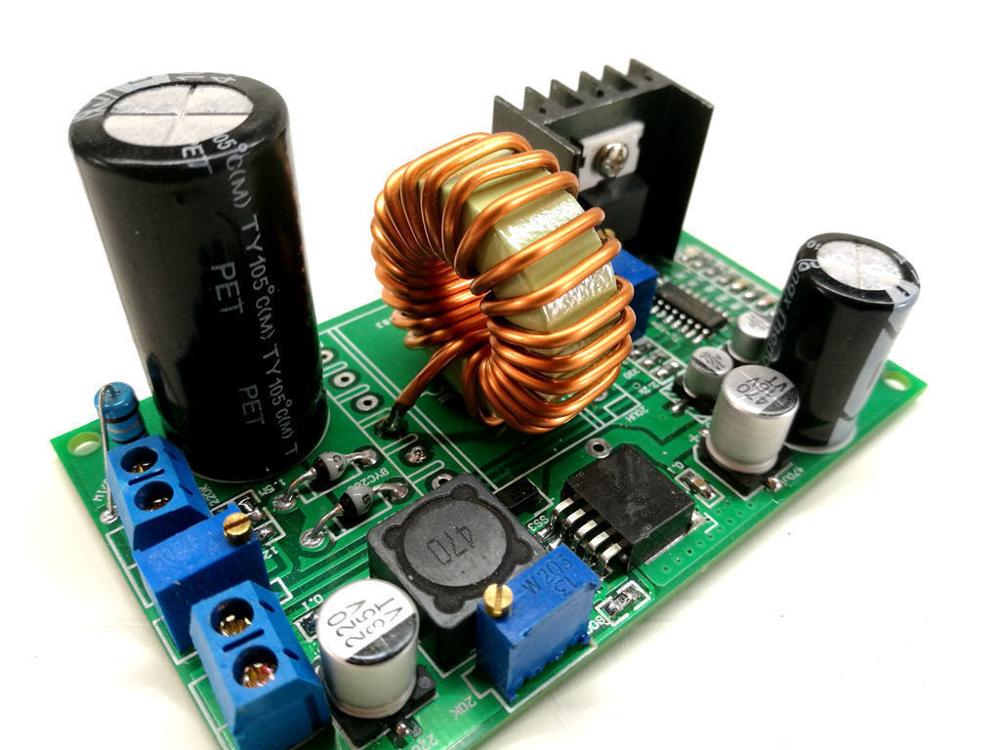Nachrichten
Modular vs Non-Modular Power Supply: Which One is Right for You?
Autor: ZYG Leistungsmodul Time: 2023-9-12
When it comes to building a computer or upgrading your existing one, one of the important components that often gets overlooked is the power supply unit (PSU). The PSU is responsible for supplying power to all the components in your computer, and choosing the right type of PSU can greatly impact the performance and reliability of your system. One common dilemma that computer enthusiasts face is whether to choose a modular or non-modular power supply. In this article, we will explore the differences between these two types and help you decide which one is right for you.
First, let’s understand what modular and non-modular power supplies are. A modular power supply is designed with detachable cables, allowing you to connect only the cables that are necessary for your system. This results in a cleaner and more organized build, as you don’t have to deal with a bunch of unnecessary cables cluttering your case. On the other hand, a non-modular power supply comes with a fixed set of cables that are permanently attached to the unit.
One advantage of a modular power supply is its flexibility. Since you can choose which cables to use, you can customize the cable management according to your needs. This not only enhances the airflow within your case but also simplifies the process of adding or removing components in the future. Additionally, modular power supplies are ideal for small form factor builds, where space is limited, as you can eliminate excess cables and achieve a neater and more compact build.
However, modular power supplies do come at a higher cost compared to non-modular ones. This is because of the additional components and connectors required to make the cables detachable. If you are on a tight budget, a non-modular power supply might be a more cost-effective option. Additionally, non-modular power supplies are generally more reliable as they have fewer connection points, reducing the chances of loose connections or cable failures. They are also easier to install, as you don’t have to worry about connecting the right cables or misplacing any detachable ones.

Another consideration when choosing between modular and non-modular power supplies is the aesthetics of your build. If you are someone who pays attention to the overall look of your computer, a modular power supply can give you a cleaner and more professional appearance. With fewer cables visible, you can showcase your components and create a visually appealing build. However, if cable management is not a concern for you or if your case has excellent cable management features, a non-modular power supply will serve you just fine.
The choice between a modular and non-modular power supply ultimately depends on your specific needs and preferences. If you prioritize flexibility, cable management, and a clean aesthetic, a modular power supply is the way to go. On the other hand, if you are on a budget or value simplicity and reliability, a non-modular power supply will suffice. Whichever type you choose, be sure to consider the power requirements of your system to ensure that the PSU can deliver enough power to all your components. Remember, the power supply is the heart of your computer, so choose wisely.
Vorherige: DC-DC Power Supply Module: A Compact Solution for Efficient Power Conversion
Nächste: AC Power Supply Module supplier: Ensuring Reliable and Efficient Electrical Energy Conversion
relevante Information
-
2023-8-2
Efficient AC to DC Converter for LED Lighting with 12V Output
Introduction: In recent years, LED lighting has gained popularity due to its energy efficiency and long lifespan. To power these LED lighting systems, an efficient AC to DC converter is required to convert the alternating current (AC) from the power source to the direct current (DC) needed by the LEDs. This article explores the importance of an efficient AC to DC converter for LED lighting and presents a detailed analysis of a converter with a 12V output. Advantages of LED Lighting: Before delving into the AC to DC converter, it is essential to understand the advantages of using LED lighting. LEDs are renowned for their energy efficiency, consuming significantly less energy compared to traditional incandescent bulbs. Additionally, LEDs have a...
Einzelheiten anzeigen -
2023-6-14
Power supply is an indispensable part in electronic devices. It provides the necessary power to run the device and is responsible for its proper functioning. In recent years, with the development of technology, the demand for power supplies has increased and manufacturers are constantly striving to provide more efficient and reliable power supplies. One such power supply that has gained popularity in the market is the DM Series DC DC Power Supply. The DM Series DC DC Power Supply is a high-performance power supply designed to meet the demands of today's electronic devices. It is widely used in various fields, such as telecommunications, medical equipment, military, aerospace, and industrial automation. The DM Series power supply is designed to provide stable...
Einzelheiten anzeigen -
2023-6-20
AC DC Converter Module: An Advanced Power Solution for Industrial Applications
An AC DC converter module is an advanced power solution that is becoming increasingly popular in industrial applications. This module is designed to convert alternating current (AC) to direct current (DC) and is used to power a wide range of devices and equipment in industries such as telecommunications, medical, industrial automation, and many others. In this article, we will explore the features and benefits of AC DC converter modules and how they are being used in industrial applications. Features of AC DC Converter Modules AC DC converter modules come in a variety of designs and configurations, but they all share some common features. These include: 1. High Efficiency: AC DC converter modules are highly efficient, with some modules boasting efficiency...
Einzelheiten anzeigen -
2023-4-14
AC-DC-Wandler: Umwandlung von Wechselstrom in Gleichstrom
An AC-DC converter, also known as a rectifier, is an electronic device that is used to convert alternating current (AC) to direct current (DC). It is an essential component in many electronic devices, as most devices require DC voltage to operate. The process of converting AC to DC involves the use of diodes, which are electronic devices that allow current to flow in only one direction. The AC voltage is fed into the input of the converter, which contains a series of diodes that are arranged in a specific configuration. This configuration determines the voltage and current characteristics of the output DC voltage. The simplest form of an AC-DC converter is a half-wave rectifier, which consists of a single diode...
Einzelheiten anzeigen -
2023-4-22
Aufbau eines 120-V-AC-Netzteils für 3-V-DC-Ausgang
Building a 120V AC Power Supply for 3V DC Output If you need a 3V DC power supply, there are a lot of options to choose from. However, if you want to build one yourself, you can do it with a few simple components. Here\'s how to build a 120V AC power supply for a 3V DC output. Step 1: Gather Your Materials To build a 120V AC power supply for a 3V DC output, you\'ll need the following components: - Transformer with a 120V AC primary and a secondary output of 3V AC - Rectifier diode (1N4007) - Capacitor (1000uF, 25V) - Voltage regulator IC (LM7803) - Heat sink for the voltage regulator - Resistor (240 ohm) Step 2:...
Einzelheiten anzeigen -
2023-5-2
Designing an AC-DC Converter Circuit
Introduction AC-DC converters are electronic circuits used to convert an AC voltage to a DC voltage. These circuits are used in a wide range of devices, including power supplies for electronic equipment, battery chargers, and LED drivers. In this article, we will discuss the design of an AC-DC converter circuit. Design Considerations The design of an AC-DC converter circuit involves several considerations, including the input voltage, output voltage, output current, and efficiency. The input voltage is the AC voltage that is to be converted to DC. The output voltage is the DC voltage required for the load. The output current is the current that the load requires. The efficiency is the ratio of the output power to the input power....
Einzelheiten anzeigen


















